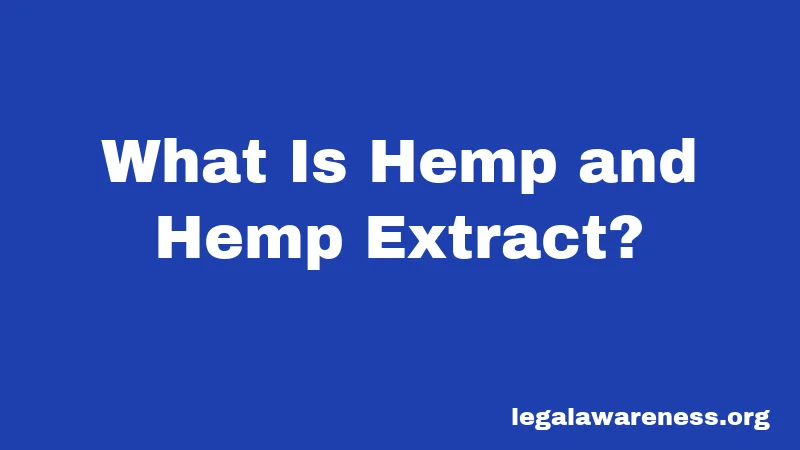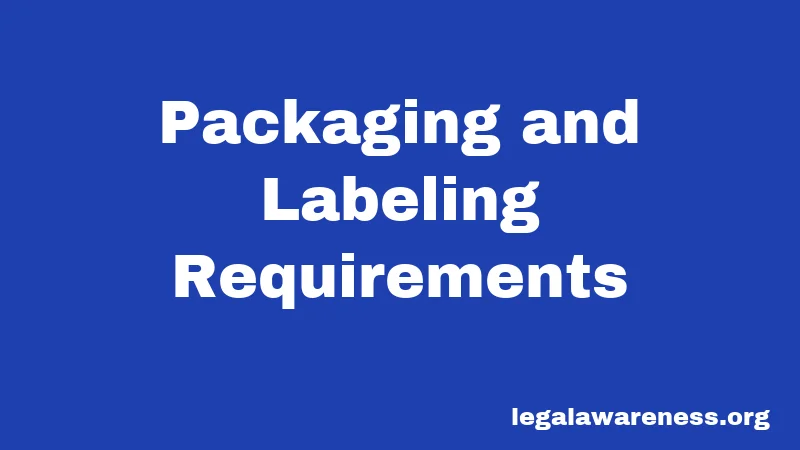Florida Hemp Laws in 2026: New Rules Changing Everything
Most people have no idea what’s actually legal when it comes to hemp in Florida. Seriously. But if you’re buying hemp products or thinking about starting a business in this space, the rules just got a lot stricter. Florida’s hemp laws changed dramatically in 2025, and there’s more coming in 2026. Let’s break down exactly what you need to know right now.
What Is Hemp and Hemp Extract?

Okay… this one’s important. Hemp is a plant. It’s legally different from marijuana in one key way: it must contain less than 0.3% delta-9 THC by dry weight. That’s the federal definition. Think of it like a cousin of marijuana, but much less potent and currently legal.
Hemp extract is basically anything made from hemp that people consume. This includes gummies, beverages, vape products, edibles, and oils. Pretty straightforward, right? Here’s the thing: Florida allows these products, but only if they follow some very specific rules.
Basic Florida Hemp Laws
What You Can Actually Buy
Not sure what counts as legal? Let me break it down. You can purchase hemp products in Florida if they meet these requirements: they contain less than 0.3% delta-9 THC by dry weight, they’re sold only to adults 21 and older, they come in child-resistant packaging, and they come from licensed retailers with valid food establishment permits.
You can buy gummies, beverages, vape products, oils, and edibles. The key is they must meet state packaging and labeling standards. You can also purchase products online, but you’ll need to provide age verification at delivery.
Sound complicated? It’s actually not once you understand the basics. The state doesn’t want kids getting these products. So they made strict rules about how they’re packaged, labeled, and sold.
Where You Can Buy Hemp Products
This is where things get interesting. As of 2026, the rules about where you can buy hemp are tightening up. Currently, hemp products are sold in gas stations, convenience stores, smoke shops, and online retailers. But that’s about to change.
New regulations coming in 2026 will limit sales to businesses with proper Department of Agriculture and Consumer Services (DACS) food establishment permits. That means your local convenience store might not be able to sell hemp products anymore. Only licensed food establishments will be allowed. This keeps products away from impulse purchases at random locations.
The state already seized over 155,000 illegal hemp product packages in 2025. That should tell you how serious they are about enforcement.
Age Restrictions Are Real
You have to be 21 or older to buy hemp products in Florida. No exceptions. If you’re under 21, retailers are breaking the law by selling to you.
Retailers can face serious penalties for selling to minors. We’re talking fines, product seizures, and loss of their business licenses. They’re definitely checking IDs now.
Packaging and Labeling Requirements

Here’s where it gets detailed. But stay with me here — this affects what you should look for when buying.
All hemp products must come in child-resistant packaging starting June 2025. That means special containers that are hard for kids to open. The packaging must also clearly list the THC content, serving sizes, ingredient panels, and include a scannable QR code linking to the product’s Certificate of Analysis (COA).
The COA is basically proof that a third-party lab tested the product. You’re gonna love this one: you can scan that QR code with your phone in three steps or fewer to verify what’s actually in the product. This protects you from mislabeled or fake products.
Products can’t look like candy or snacks. No cartoon characters. No bright colors designed to appeal to kids. No packaging that mimics popular snacks or brands kids like. The state has actually banned 37 color additives completely and another 29 when used as colorants.
Honestly, this is the part most people miss. But it matters. If a product isn’t properly labeled or packaged, it’s illegal. Period.
What Changed in 2025 and What’s Coming in 2026
Okay, pause. Read this carefully. There are some big changes happening right now.
In March 2025, Florida updated its hemp rules (Rule 5K-4.034). These rules took effect and enforcement began on June 16, 2025. The state is now strictly enforcing packaging, labeling, and marketing standards. They’re not messing around.
But wait, it gets better. The federal government passed a new law in November 2025 that will dramatically change everything come November 2026. Here’s what’s coming: starting November 13, 2026, all hemp products will be limited to 0.4 milligrams of total THC per container. Not per serving. Per entire container.
Think about that. That’s almost nothing. Many of the products you can buy today will become illegal. Hemp beverages, gummies, edibles — if they exceed 0.4 milligrams total THC, they’ll be contraband.
The federal law also bans synthetic cannabinoids like delta-8 THC, delta-10 THC, and HHC. These are cannabinoids created through chemical conversion or that don’t occur naturally in hemp. If you’re buying products with these, know they’ll be illegal in about a year.
This federal law changes everything. It’s not just Florida. It’s nationwide. And it goes into effect before 2027.
State Proposals That Nearly Passed (And Might Try Again)

Don’t worry, we’ll break it down step by step. In 2025, Florida lawmakers proposed some additional rules that didn’t quite make it through.
House Bill 7027 would have limited hemp product sales to only DACS-licensed food establishments. It was supposed to take effect January 1, 2026. While the Senate passed similar language, the full implementation got complicated.
House Bill 7029 proposed a 15% excise tax on all hemp product retail sales. This could have generated over $1.5 billion annually. The first $6 million would go to enforcement and testing. But again, this didn’t pass in the exact form proposed.
You’re not alone, this confuses a lot of people. But here’s the bottom line: Florida is moving toward stricter regulation. Even if these specific bills didn’t pass, future sessions will likely bring similar proposals back. The trend is clear: fewer places to buy, more testing requirements, and possibly taxes.
Special Restrictions on Product Appearance
This one’s probably the most important rule. Products cannot be attractive to children. That’s not just a guideline. That’s the law.
Products shaped like animals, cartoons, or people are banned. Packaging with bright neon colors is banned. Anything designed to appeal to kids is illegal. The state created a specific list of over 65 color additives that are either completely prohibited or prohibited as colorants.
Think of it like this: if a product looks like it was designed for a kid to want it, it’s probably illegal in Florida. The state has found thousands of noncompliant products in raids across Florida.
Retailers who knowingly stock these products face immediate seizure of the products and administrative fines. Some retailers have lost their licenses entirely. This isn’t a minor issue.
Penalties and What Happens If Laws Are Broken
Let’s talk about what happens when someone breaks these rules. Penalties depend on the violation, but they’re serious.
For consumers buying illegally: You’re not the main target, but buying from unlicensed retailers is risky. You might get a product that’s mislabeled or contaminated.
For retailers selling noncompliant products: The state can seize all noncompliant inventory immediately. Fines can reach thousands of dollars. In some cases, retailers lose their business licenses entirely.
For manufacturers: If products don’t meet packaging or labeling standards, they can’t be sold in Florida. If a company knowingly sells noncompliant products, they face significant penalties and potential criminal charges.
Selling to minors is treated especially seriously. Retailers caught selling to anyone under 21 face hefty fines and license suspension. Some have even faced criminal charges.
This is more serious than a traffic ticket. Think of it like selling alcohol illegally. The consequences are real.
Cannabis Patients — Special Rules Apply to You
Medical marijuana patients in Florida have different rules. If you have a valid medical marijuana card, you can purchase cannabis products from licensed dispensaries. These products operate under a completely different regulatory system.
Medical marijuana products can contain any amount of THC your doctor recommends. You’re not subject to the 0.3% THC limit that applies to hemp products. Your dispensary card gives you legal protection.
The new federal hemp law and Florida state hemp restrictions don’t affect medical marijuana patients. Your access remains the same. But remember: medical products can only come from licensed dispensaries, not from regular retail stores.
If you’re not a medical patient, you can’t use the medical marijuana system. You’re limited to the hemp products available at retail.
How to Buy Hemp Products Safely and Legally
Here’s what you need to do. First, buy only from licensed retailers. These are typically food establishments registered with DACS. When you walk in, ask if they’re licensed to sell hemp products. A legitimate seller will have documentation.
Second, check the packaging. Make sure there’s a QR code you can scan. Scan it and verify the Certificate of Analysis. This proves the product was independently lab tested and contains what the label says.
Third, look at the THC content. Make sure it says less than 0.3% delta-9 THC. Check if it lists other cannabinoids like THCA or delta-8. Remember: the federal ban coming in 2026 will eliminate most intoxicating hemp products.
Fourth, make sure the packaging looks professional. If it looks like it was designed for kids, don’t buy it. That product is likely illegal.
Fifth, keep your receipt. If something goes wrong with the product, you’ll want proof of purchase.
Trust me, this works. Buying from legitimate retailers with verified testing protects both you and the businesses selling these products.
The Federal Ban Coming November 2026
Okay, this part’s important. The federal government just changed the entire game.
In November 2025, Congress passed a new law as part of a government spending bill. This law takes effect November 13, 2026. Here’s what it does: it limits all hemp products to 0.4 milligrams of total THC per container. That includes delta-9 THC, THCA (which converts to THC when heated), and all other THC variants.
It also bans synthetic cannabinoids that don’t occur naturally in hemp. That means delta-8 THC, delta-10 THC, HHC, and similar products become illegal nationwide.
Pretty straightforward, but the impact is huge. Most intoxicating hemp products currently sold in Florida will become illegal. This applies to beverages, gummies, edibles, vapes, and other consumption methods.
Wait, it gets more complicated. The FDA has 90 days from the law’s passage to define what a “container” means. This definition matters because it determines whether a multi-serving product with 0.4 milligrams total THC would be legal or if each serving needs to be under 0.4 milligrams.
Some industry experts say this law essentially bans most hemp products currently on the market. That’s why it’s being called a “hemp ban” even though it doesn’t explicitly use that word.
Will Medical Marijuana Patients Be Affected?
I looked this up recently. The federal hemp ban does not affect medical marijuana patients. These are separate legal systems.
Medical marijuana comes from cannabis plants. Hemp products come from hemp plants. Even though they’re the same species, they’re regulated completely differently. Your medical marijuana card protects your access to medical products.
So if you’re a Florida medical marijuana patient, nothing changes for you. Keep your card active, keep buying from licensed dispensaries, and you’re good to go.
Frequently Asked Questions
Can I legally buy hemp products online in Florida?
Yes, but there are conditions. The retailer must be licensed. You must provide age verification (you’re 21 or older) at delivery. The product must meet Florida’s packaging and labeling standards. Honestly, this is pretty straightforward.
What’s the difference between hemp and marijuana in Florida?
Hemp contains less than 0.3% delta-9 THC by dry weight. Marijuana (cannabis) can contain any amount of THC and is only legal for medical use with a valid card. That’s the legal distinction.
Will all my favorite hemp products become illegal in 2026?
Probably most of them. The 0.4 milligram federal limit will eliminate nearly all intoxicating hemp products currently on the market. Only non-intoxicating CBD products and specially reformulated hemp items will remain legal.
Can I grow hemp at home in Florida?
No. Only licensed cultivators can legally grow hemp in Florida. Home cultivation is illegal. You’ll need to buy from licensed retailers.
What happens if I buy from an unlicensed retailer?
The product might be mislabeled, contaminated, or fake. You have no guarantee of quality or safety. You’re also supporting an illegal business. It’s better to wait a few extra minutes and find a licensed retailer.
Are synthetic cannabinoids like delta-8 legal in Florida right now?
Currently, yes, if they meet the 0.3% delta-9 THC requirement. But the federal ban coming in November 2026 will make them illegal nationwide. Time is running out for these products.
Final Thoughts
Florida’s hemp laws are getting stricter every month. The state is serious about enforcement, and the federal government just changed the entire landscape for 2026.
Right now, you can legally buy hemp products if you follow the rules. Buy from licensed retailers. Check the packaging and verify the COA. Make sure products are properly labeled and don’t look like they’re designed for kids. And remember: everything changes in November 2026.
Stay informed about these changes. The hemp market is going to look very different a year from now. When in doubt, ask the retailer for their DACS license information or reach out to the Florida Department of Agriculture and Consumer Services directly.
This is a rapidly changing area of law. What’s legal today might not be legal tomorrow. But now you know the basics. Stay safe and stay compliant.
References
Florida Department of Agriculture and Consumer Services – Hemp Program
Florida Statute 581.217 – Hemp Regulation
Rule 5K-4.034 – Hemp Extract Products for Human Consumption
Federal Hemp THC Limits Taking Effect November 2026 – FDA Guidance
CannaMD – Federal Hemp THC Ban Explanation
Brewers Law – Florida Hemp Regulations and Federal Limits
